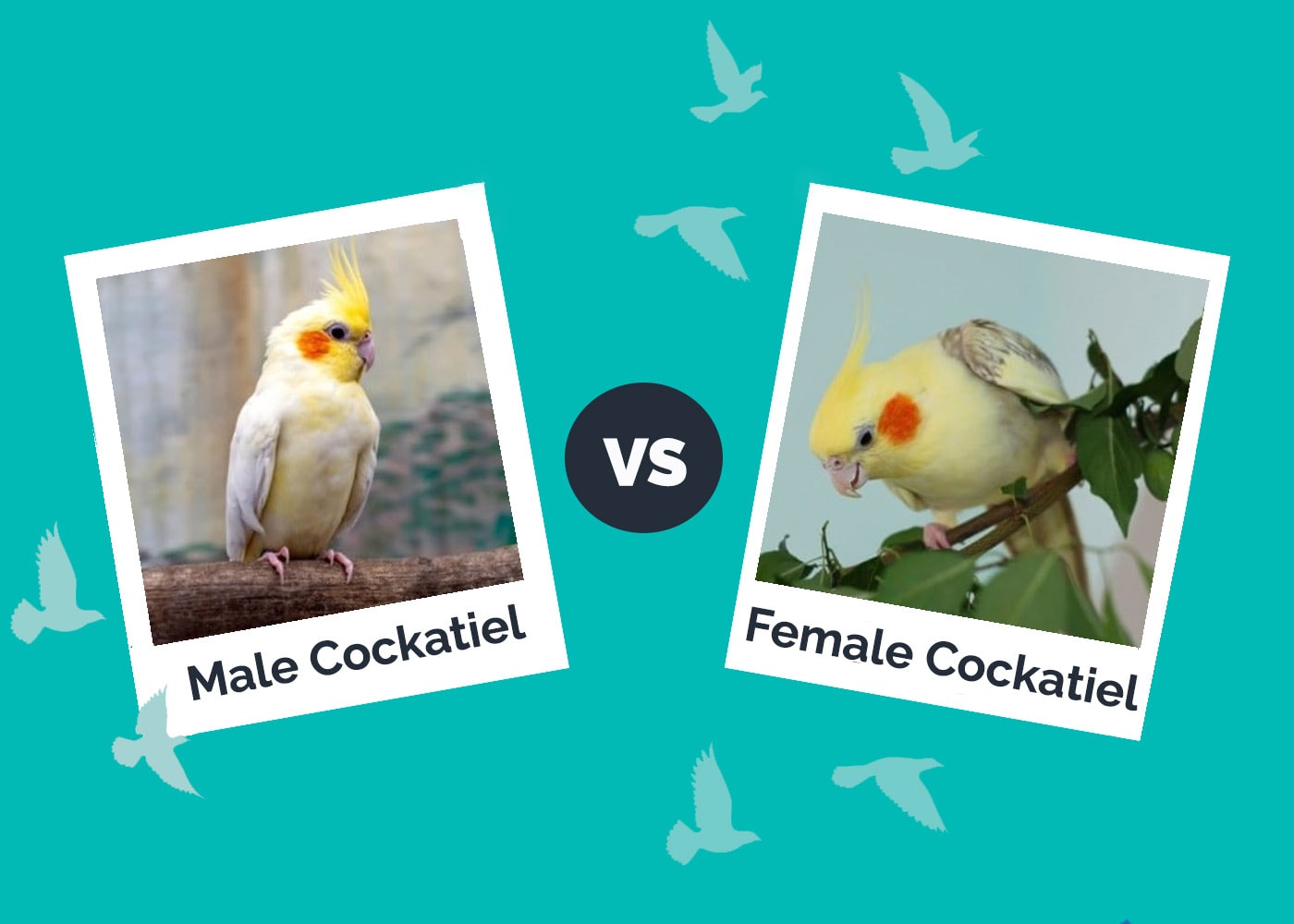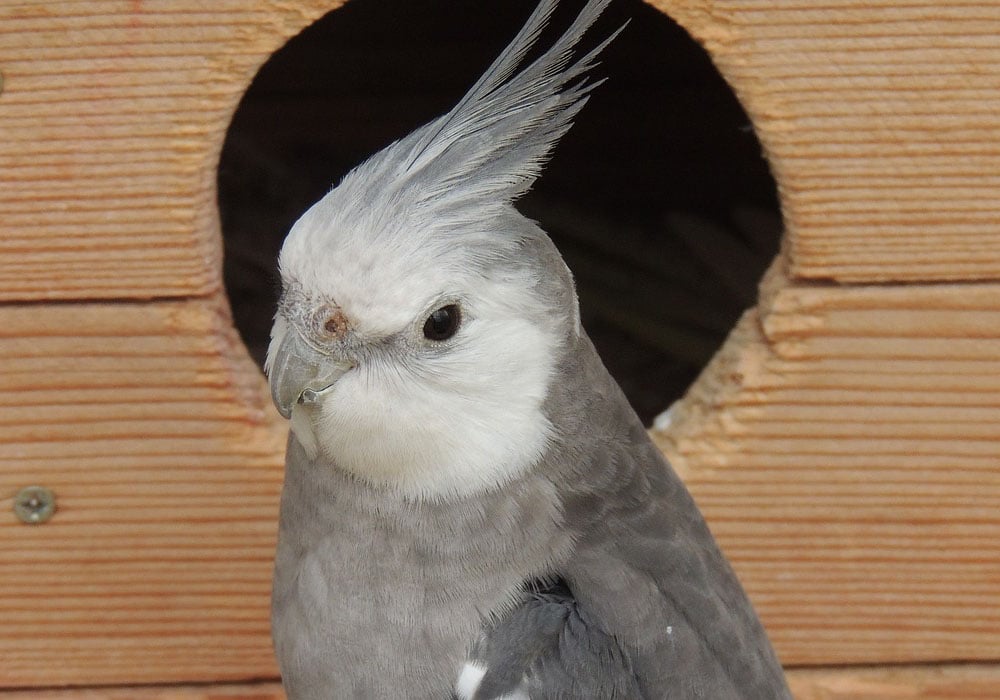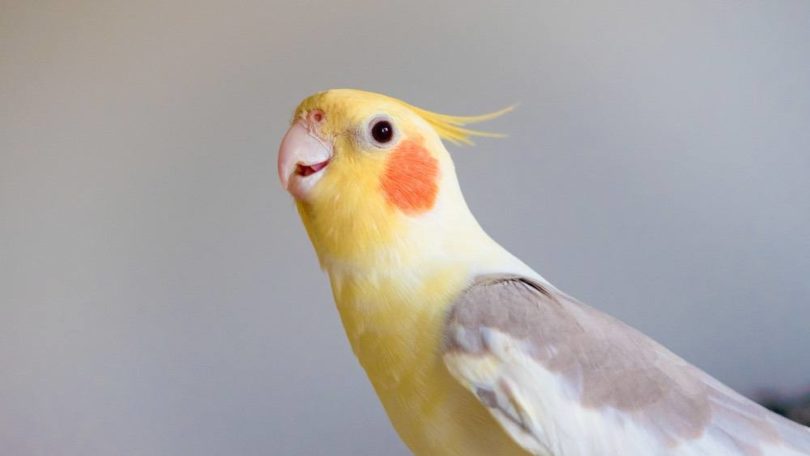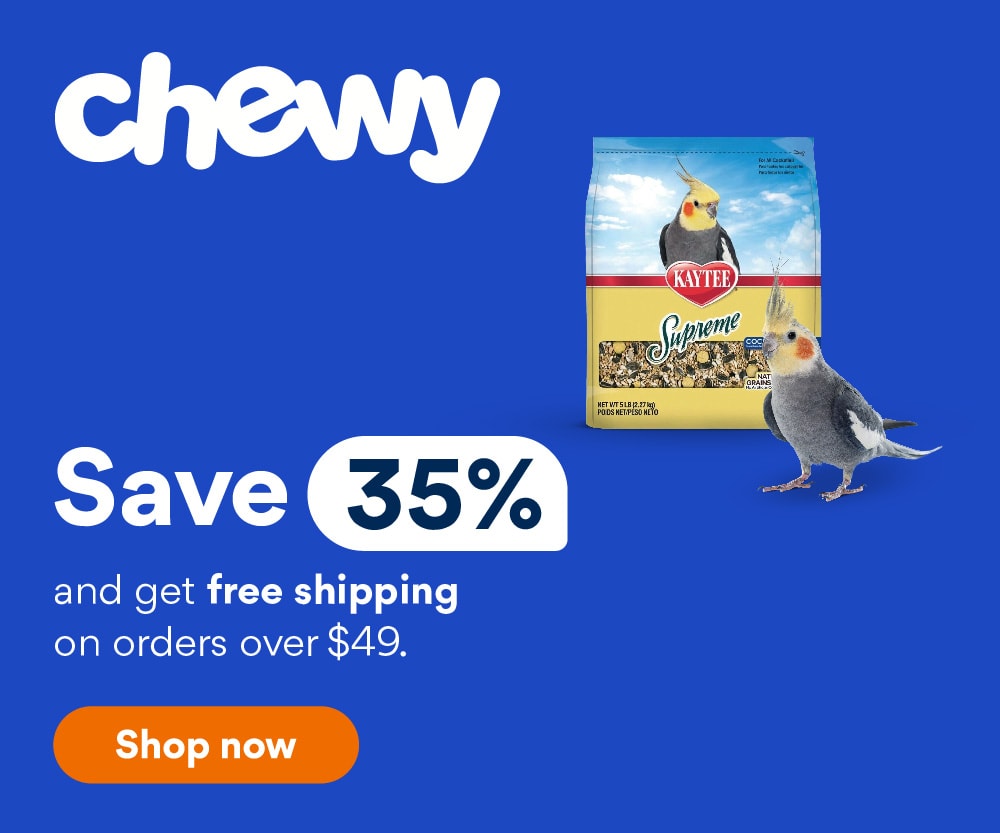Cockatiel Poop Chart: Vet-Reviewed Signs to Look For (With Infographic)
Updated on
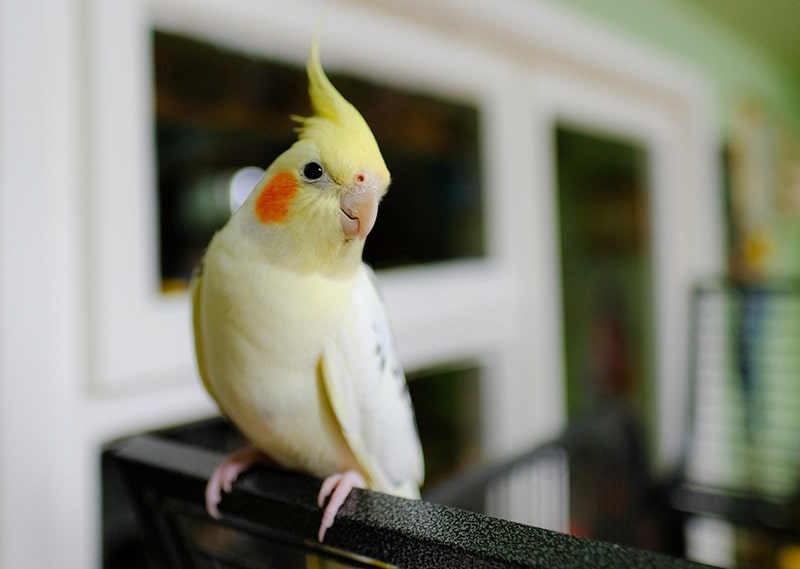
Click to Skip Ahead
Cockatiels are normally such happy-go-lucky birds that you hate to see them not feeling their best. Many animals instinctively hide any weaknesses, like illness, to avoid appearing vulnerable.
Bird droppings offer an excellent way to monitor your pet’s health in a non-invasive way. Some changes are normal, particularly if you offer your bird fresh fruits and vegetables as part of its diet. However, it can be hard to tell the difference between normal and healthy cockatiel poop. Check out what some of the concerning signs might be down below.
Recognizing Normal Cockatiel Droppings

- Water and water-soluble products of excretion: These are the human equivalent of urine, and are excreted from the bird’s kidneys.
- Urates: These are a white, pasty solution which is also excreted from the kidneys.
- Feces: These are the by-products of digestion and are either black, brown, or green in color, having an almost worm-like appearance.
The proportion of water-soluble products, urates, and feces in birds’ droppings may vary. At times, they vary because of dietary changes. At other times, they may change due to an underlying condition or illness. Whenever a bird passes droppings, they excrete all three of these components together. The only bird that can excrete just urine (without the other components) is the ostrich.
Cockatiels typically produce small, dry, comma-shaped droppings. The consistency of the droppings depends on your cockatiel’s diet.
Poop Chart: Signs to Look Out For
| Sign | Indication |
| Clear urine and white urates (uterine crystals) with green or brown feces | Normal |
| Yellow or green urine and urates with feces | Liver Disease or Internal Bleeding |
| Clear urine and white urates with green, black, or red feces | Normal after eating fresh produce |
| Red urine and urates with feces | Renal or Digestive Issues, Certain Poisonings, Cloacal Diseases or Abnormalities |
| Urine and Urates with no Feces | Starvation or Obstruction along digestive tract. |
| Diarrhea | Non-diagnostic but possible internal parasites, bacterial disease or related to laying and incubation. |
| Popcorn-like feces | Giardiasis |
| Feces with mucus | Intestinal Disturbance |
| Undigested food in the feces | Proventricular dilatation disease, bacterial issues or parasitic infestations. |
| Increased urine | Ingestion of foods with a high water content, kidney disease |
| Black-colored feces | Certain foods, digested blood, metal toxicity |
Dropping Types and Variations
1. Yellow or Green Urine and Urates With Feces
Yellow or green in a bird’s droppings often point to a liver issue. In such instances, the urine is more often green than yellow. This is because the major bile pigment (biliverdin) is green in color. Yellow-looking urine is caused by issues that result in high amounts of bilirubin (another bile pigment)-this is yellow in color.
- Liver issues that are either of bacterial or viral origin
- Avian chlamydiosis
Yellow-appearing urates are often associated with high amounts of internal bleeding. These can be caused by internal hemorrhages, bruises, or a traumatic event that results in injury. In some cases, medications (specifically, some injections in large quantities) can temporarily give urates a yellow-green tinge. You should have your bird examined by your veterinarian if you ever observe their droppings having green or yellow urine and urates.
Avian chlamydiosis is particularly troubling because it can cause psittacosis in humans. Proper hygiene is the best prevention, especially after cleaning your pet’s cage. It typically only causes mild symptoms in people.
2. Clear Urine and White Urates With Green, Black, or Red Feces
This condition is often caused by the fruits and vegetables you offer your cockatiel as treats. Commercial foods containing these ingredients may have a similar effect. It is often harmless and self-limiting. The exception is if the consistency of your pet’s feces is loose. We recommend giving your bird only small portions, particularly when introducing new foods.

3. Red Urine and Urates With Feces
- Pigmented foods (such as beetroot) – in this case, the feces may also appear red.
- Some medications (including topical medication)
If you observe blood in your bird’s droppings, the causes are often more worrying and warrant immediate veterinary attention. Because a bird’s body will mix feces with water-soluble excretion and urates in the cloaca before passing them, it’s very difficult to pinpoint the source of the blood.
- Lead poisoning
- An obstruction in the intestines
- Bacterial, Viral, or Parasitic Diseases
Blood that does not mix with the droppings but appears as a drop or spot either in or on the droppings is usually from the cloaca.
- Infections
- Stones along the urinary tract (uroliths)
- A papilloma (a type of viral growth)
- A prolapsed oviduct (for females), possibly in conjunction with egg-laying issues (such as egg binding).
- Tumors
4. Presence of Urine and Urates but no Feces
This indicates that your bird is either starving or there’s an obstruction somewhere along their digestive tract which is preventing them from passing feces normally.
5. Diarrhea
Diarrhea isn’t diagnostic in itself. In addition, diarrhea is relatively rare in cockatiels and most other birds. In a mating pair of cockatiels, this may be considered normal. When birds incubate their eggs, they “hold in” their droppings and pass a bulky, large, abnormal-looking dropping when they leave the nest. As both female and male cockatiels incubate their eggs, you may observe these droppings from both your birds. However, because female cockatiels are more involved in the incubation process, it’s more likely to be observed in females. In addition, female birds will also “hold” their droppings while they lay eggs and eventually pass droppings that resemble diarrhea after they lay an egg and leave their nest. This behavior may start a few days before she lays her first egg.
- Bacterial infections
- Viruses
- Intestinal parasites
All these causes require prompt veterinary attention for your bird. Though diarrhea is rare in cockatiels, it can be very detrimental if left unaddressed.
6. Popcorn-Like Feces
This rather odd description is a classic sign of giardiasis in birds. Dehydration is a serious complication if left untreated. An affected cockatiel may show other signs of stress, such as loss of appetite and feather plucking. Dirty drinking water is a common cause of this protozoan parasite. You might also see a loss of appetite and lethargy in your pet.
7. Feces With Mucus
Occasionally, birds with an intestinal disturbance may have a mucoid, gray coat on the fecal portion of their droppings. Such issues require veterinary attention for an accurate diagnosis and treatment.
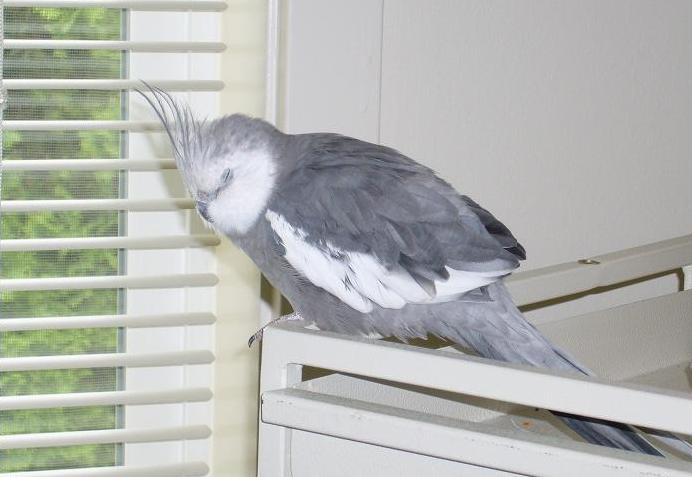
8. Undigested Food in the Feces
- A dilated proventriculus (a part of your cockatiel’s digestive tract)
- Some bacterial infection (rare in cockatiels)
- Certain parasitic infestations (such as trichomoniasis)
- A bowel irritant
If the food appears separate from the feces, it might not be a bowel issue and instead may be a regurgitation issue.
9. Increased Urine
If you give your cockatiel fruits and vegetables, you may notice a higher urine output than normal. Many of these foods contain mainly water, thus increasing your pet’s moisture intake. It may also occur simply because your bird is drinking a lot of water. Kidney disease can also affect how much water your pet consumes, making it worth investigating.
10. Black-Colored Feces
Feeding your cockatiel berries or beetroot can cause dark or black-colored feces caused by the pigments in the skins and pulp of some fruits. Otherwise, it’s not normal and is a potential sign of internal bleeding. The darker color indicates it’s occurring farther up the bird’s GI system. It is a pet emergency requiring immediate treatment. Black colored droppings may also be indicative of metal poisoning, which also requires veterinary treatment.

Conclusion
Cockatiels are relatively long-lived birds, particularly if you provide them with a healthy diet that meets their nutritional needs. Monitoring the color and consistency of your bird’s droppings offers a way to keep track of its health. It may even save your pet’s life if you catch the early warning signs of a health condition.
Featured Image Credit: Nick Beer, Shutterstock



